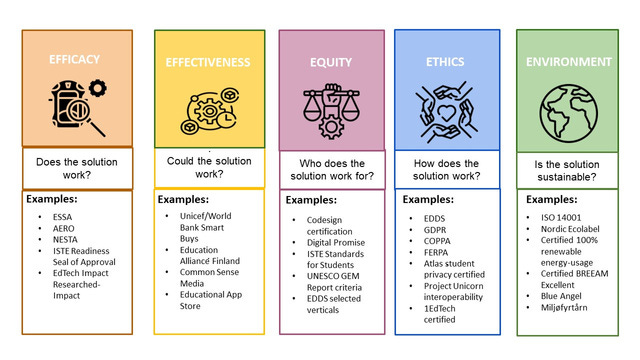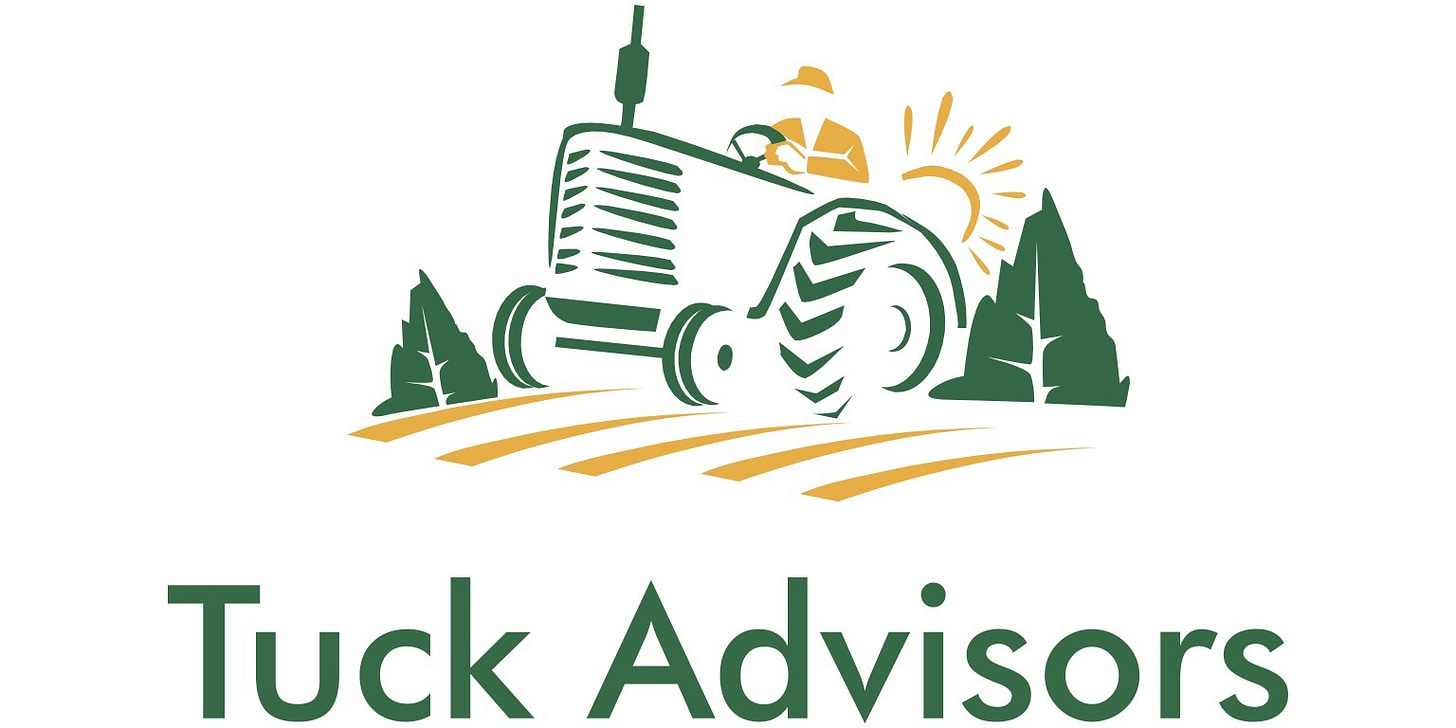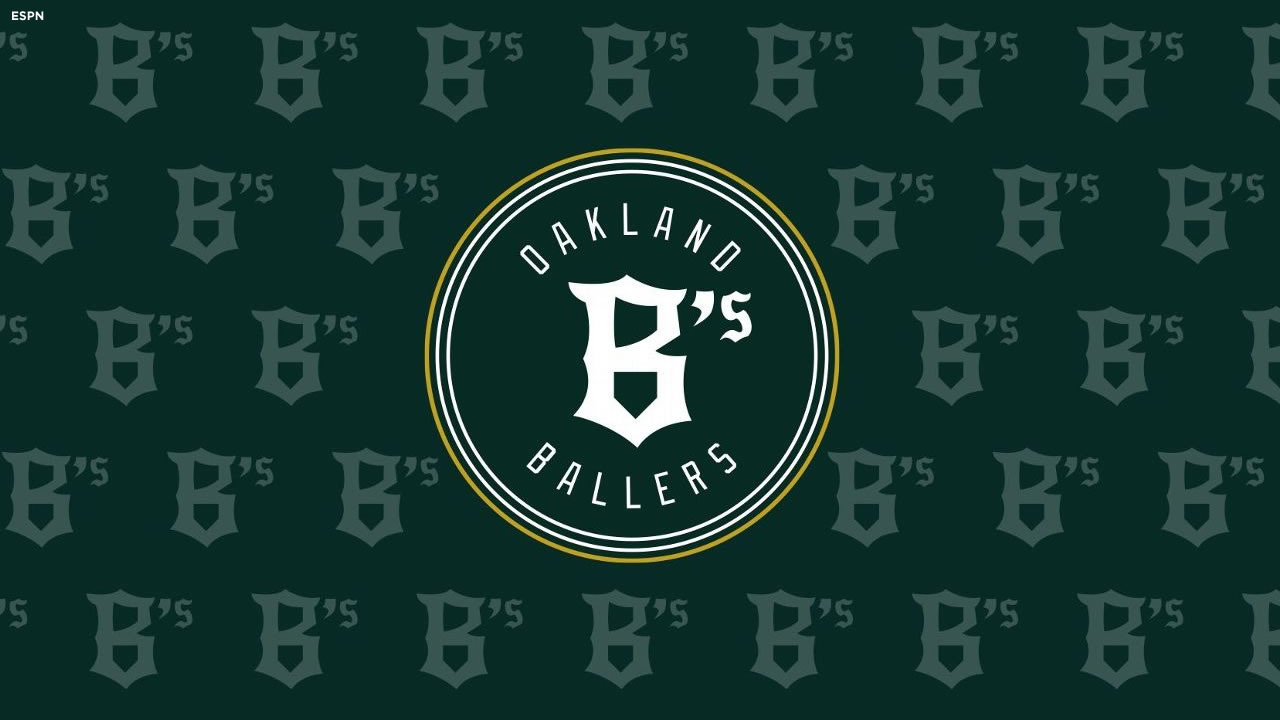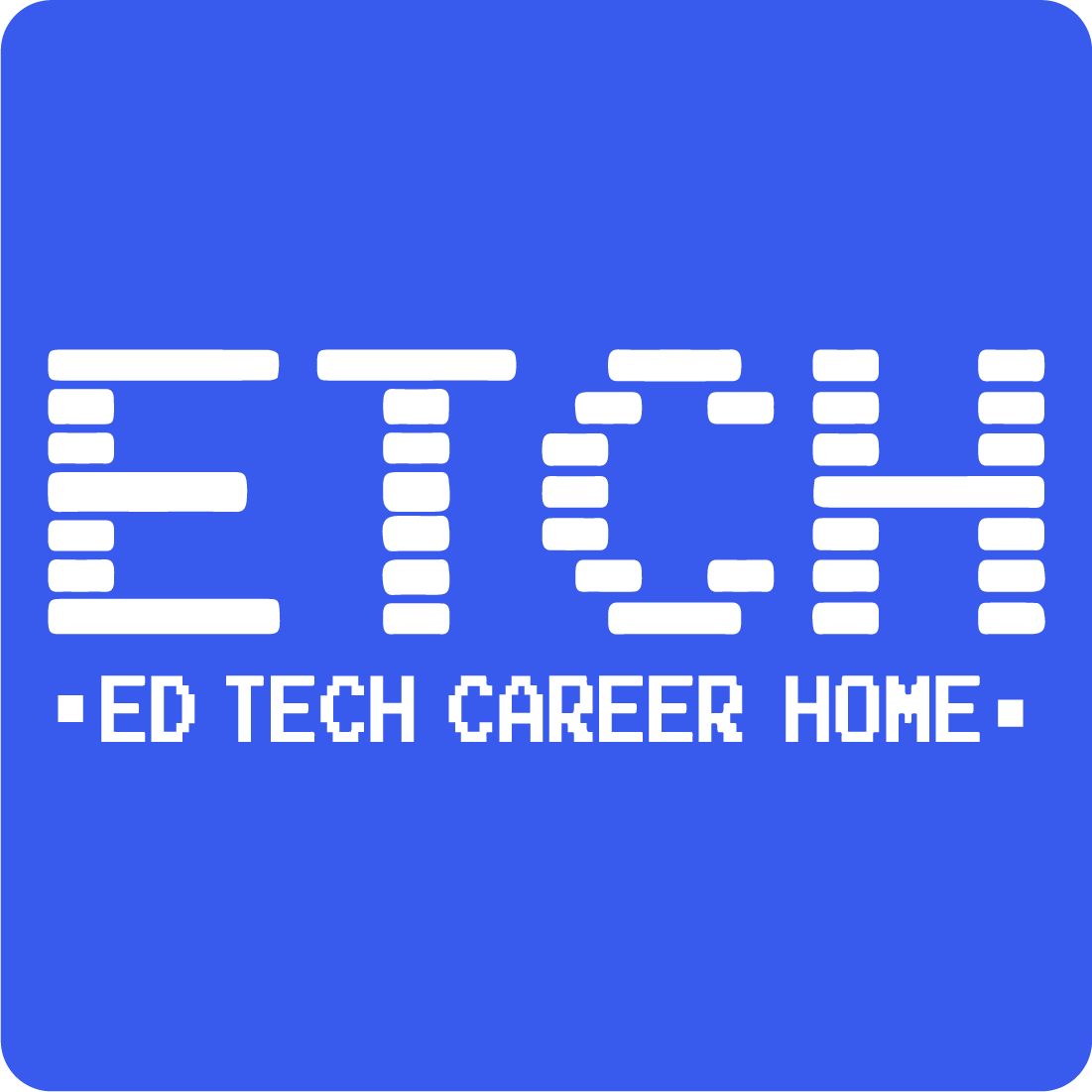The Wild World of Edtech Certifications: Establishing Proof of Impact
And more on upcoming events, Khan Academy and Microsoft, 2U, Common Sense Media AI Research, and Pearson AI Research.
🚨 Follow us on LinkedIn to be the first to know about new events and content! 🚨
The Wild World of Edtech Certifications: Establishing Proof of Impact
By Natalia I. Kucirkova and Pati Ruiz
Natalia I. Kucirkova is research professor based in Norway and co-director of the International Centre for EdTech Impact operating globally. She is affiliated with the University of Stavanger, Open University, and University College London. She has published 80+ research articles on evidence-based approaches towards children’s literacy and EdTech. Natalia is currently developing a multidimensional EdTech Impact Index to support holistic approaches to educational evaluations.
Pati Ruiz is a Senior Director of EdTech and Emerging Technologies at Digital Promise where she leads Digital Promise’s overarching education technology strategy with the goal of transforming how educators, learners, and communities use technology to improve learning. Drawing upon the strong base of research, development, and programmatic activities across Digital Promise, the EdTech team works to actively transform large-scale applications of edtech and emerging technologies to enhance learning outcomes and advance digital equity for all learners.
It's an open secret in the edtech industry that the success of a company is often unrelated to the quantifiable learning outcomes of their product. For years, edtech tools could go to market with minimal proof of learning, and measuring learning impact in the industry has been a notorious challenge for big and small companies alike. However, after the rapid adoption of tools during the COVID-19 pandemic, several factors have combined to put evidence in the spotlight. Between the new urgency around the implementation of GenAI in education, increased pressures from edtech investors working in a tight market, and new attempts by government agencies to regulate technology, the days in which limited proof of learning is good enough are coming to a close.
In a market saturated with thousands of edtech products and increasingly discerning users, there is a rapidly growing demand for clear standards to measure which tools are best for various circumstances and learning needs. This is increasingly true for schools and decision-makers, and has long been true for educators, who consistently report that it is difficult to trust edtech product claims and to understand which products actually have the potential to transform learning experiences for students.
This is where edtech certifications come in.
Certifications are an attempt to create accepted standards for edtech’s impact that can truly align the interests of companies, buyers, and end users. So, what types of certifications are out there and what do you need to know if you’re looking to engage with certifications for your edtech product? Let’s jump in!
The 5Es: Types of Edtech Certifications
Edtech certifications fall into a few categories, each optimizing for different types of evidence and impact. The International Certification of Evidence of Impact in Education categorizes certifications into five buckets using The 5Es Framework: efficacy, effectiveness, ethics, equity and environment.
Efficacy
Efficacy certifications validate that your solution demonstrates efficacy through controlled tests and experiments, aligning with established standards such as the Every Student Succeeds Act (ESSA) tiers in the USA, or those set by the Australian Education Research Organisation (AERO) in Australia. “Efficacy” is at heart an academic term, and these certifications emphasize externally verified research, beginning with a company's theory of change and logic model (which should be based on existing learning research), and moving up to new research studies at the higher tiers. Efficacy certifications look at statistical significance, high-quality design, and the gold standard of quantitative research, Randomized Controlled Trials (RCTs), showcasing efficacy within specific, controlled environments.
Effectiveness
In contrast to efficacy studies, effectiveness certifications prioritize teachers' perspectives, and include factors like cost-effectiveness, contextual fit, and replicability as solutions are implemented and scaled across various settings and contexts. Examples of effectiveness certifications include pedagogical certifications that assess teachers' processes and practices, such as the ISTE certification, or certifications that evaluate the pedagogical design of tools, such as the Education Alliance Finland certification (now under EdTech Impact,) or the Edtech Tulna standards from India.
Ethics
Ethics certifications in edtech tend to address the data practices of a company, encompassing how data is collected and handled for security and privacy, and how data ownership is determined from the human rights perspective. Ethics certifications tend to be issued by organizations that focus on data integrity, interoperability, and safety measures, and are now coming to include AI governance, risk and compliance. Examples of ethics certifications include Ed-Fi Certifications and Badges, along with various interoperability certifications like 1EdTech Interoperability Certification or Project Unicorn Interoperability Certification.
Equity
Equity certifications assess the degree to which edtech products and processes prioritize and empower marginalized and historically underrepresented groups, including ethnicities, gender, and socio-economic backgrounds. A notable example in this field is the Digital Promise certification on racial equity, which sets standards for promoting fairness and inclusivity in educational technology. In the world of equity certifications, inclusive and participatory design, and in the case of K12 tools child-centered design, are important markers of quality.
Environment
Environment certifications evaluate the impact of edtech products and organizations on local and global environments and on planetary health. This includes considerations like incorporation of eco-friendly content and topics within product curricula, as well as alignment with the UN’s Sustainable Development Goals (SDGs), which are impact metrics that are relevant to the environment. Examples of good practice include content promoting eco-friendly solutions and providing users with education about sustainability. On an organizational level, examples of certifications in this category include the ISO 14001 certification, which assesses compliance with international standards for environmental management.
The Most Common US Edtech Certification: ESSA
In 2015, the Every Student Succeeds Act (ESSA) was passed in the US to ensure that education and edtech solutions meet rigorous criteria for efficacy and impact on student learning outcomes. Due to this act, efficacy based edtech certifications are the most common type of certification in the US.
ESSA alignment certifications are defined by the ESSA Tiers of Evidence, described in the chart below. Under ESSA regulation, how an edtech solution is studied determines how highly it is rated. Edtech solutions need to be studied in a systematic way and have a suitable sample size to meet standards. Additionally, studies must find that students who use an edtech solution have better outcomes than students who do not use the edtech solution, and similar studies must display similar results.

ESSA Certification Providers
ESSA certifications are offered by multiple organizations, including Digital Promise, LXD Research, and LearnPlatform by Instructure.
LearnPlatform by Instructure awards ESSA Evidence Badges based on various levels of efficacy research, including logic models, foundational research, correlational, quasi-experimental, and experimental studies. These studies are conducted or validated by experienced teams of WWC-certified researchers. The review process adheres to the guidelines provided by ESSA legislation and the US Department of Education. Furthermore, the independent review and rapid cycle evaluation process is designed to streamline edtech vetting, making it quicker, easier, and more accessible for educators.
Similarly, LXD Research certifications by LXD Research and Evidence for ESSA reviews, created by the Johns Hopkins School of Education's Center for Research and Reform in Education can certify edtech products with ESSA alignment. By obtaining these certifications, edtech providers can demonstrate their commitment to meeting the highest standards of quality and evidence-based practice in the field of educational technology.
More Top Edtech Certifications
In addition to ESSA certifications, the US has spearheaded the development of numerous certifications that cover the 5Es of impact. Here are a few of the most commonly observed:
Digital Promise Certifications
At Digital Promise, we’ve partnered with nonprofit organizations with different missions, such as CAST (which focuses on Universal Design for Learning practices), the Edtech Equity Project (which focuses on equitable outcomes), and InnovateEDU (which focuses on data and interoperability), to award and co-develop new certifications through our Product Certification Platform ecosystem.
Some of Digital Promise’s current certifications include:
Learner Variability (Effectiveness): This certification recognizes tools that support learners of all backgrounds, abilities, and skills, based on Digital Promise’s research with the Learner Variability Project (LVP), which has demonstrated the tremendous variability among learners. To support developers in designing to reach the full diversity of learners, we created the Learner Variability Product Certification.
Prioritizing Racial Equity in AI Design (Equity): This certification is specifically for edtech that leverages AI and was built using models that consider racially diverse learners. Similarly, the Edtech Equity Project developed the Prioritizing Racial Equity in AI Design Certification to validate efforts to mitigate racial bias by ensuring that decisions about AI integration are intentional throughout the design of edtech products.
Practitioner-Informed Design (Effectiveness): Our newest certification is Practitioner-Informed Design, awarded to products that use partnerships with educators to continually improve product design
Universal Design for Learning (Effectiveness and Equity): Recently, CAST teamed up with Digital Promise to develop a Universal Design for Learning (UDL) Product Certification that signals to educators and districts which edtech products enable meaningful participation from all students, as outlined by the UDL framework.
The Digital Promise Evidence-Based Edtech Product Certification and the relaunch of our Research-Based Design (Efficacy) Product Certification to support education leaders in quickly identifying edtech that is supported by learning research offer educators a means to evaluate the quality and effectiveness of various edtech tools and platforms.
ISTE Certifications
The International Society for Technology in Education (ISTE) also works with partners across the field to add validations to ISTE’s EdSurge Index, in order to increase visibility of the critical product information for making informed decisions. The Edsurge Index includes validated information to illuminate key areas to consider when exploring and vetting new edtech tools. In this way, ISTE provides educators with access to valuable information about edtech products, including their certifications in multiple areas, such as edtech interoperability and privacy (Ethics), accessibility and usability (Equity) and Effectiveness. For edtech companies, these validations are valuable but sometimes hard to find, so we've provided links below to expert organizations who can help you and your team dig deeper as you progress along your product decision-making journey.
International Certifications
For readers working in international markets, there are a number of Edtech standards and certifications outside the US, such as EdTech Impact certifications, 1Edtech Europe or alignment with the Edtech Tulna standards from India.
Certification Misconceptions Debunked
With all these different certifications from different organizations, there is a perception in some quarters that organizations merely grant a certification or badge to promote the work created by the edtech evaluators themselves, and may not truly represent the efficacy, effectiveness, ethics, equity or environmental quality they promise.
The certifications we are highlighting in this article are created and granted by experts, with both teachers and researchers jointly contributing to the evaluation, according to a shared framework. These certifications are not flimsy or just for show; a lot of hard work lies behind them. They are the tip of the iceberg that is visible to external parties looking into edtech quality. Certification requires deep levels of intention, systematic work, and ongoing focus to develop, maintain, and adjust a product that is oriented toward true learner success.
There is always a risk that some certifications are more rigorous or reliable than others. Through collaboration with international research teams, coordinated by the WiKIT Research Group, the International Certification of Evidence of Impact in Education (ICEIE) has developed a system of certifications equivalence to determine whether the certifications granted by different providers provide a similar weight of evidence. Equivalence assessments are based on research-based criteria that were published in accompanying reports as consolidated benchmarks of evidence of impact. These allow companies to gauge the level of evidence they would need to obtain a certification in a given category.
To ensure that research is reliable, the ICEIE operates a two-step verification system. Companies first submit their evidence package, which must be in the form of a research package validated by either an external research partner or a certification provider. This evidence package is then sent to an independent research partner, different from the initial evidence provider or certification issuer. This independent validator assesses the package against the ICEIE criteria before awarding the global ICEIE certification. This system addresses the myth that all certifications are issued by the same entities that evaluate the technologies.
Selecting Certifications for Your Edtech Product
Regardless of where you are in your edtech evidence journey, we strongly recommend obtaining an official certification to highlight your learning impact. Remember that it is the work behind the badge that counts most, and that the badge is just the tip of the iceberg, representing all the effort you and your team have put in to create a solution that works.
Here are some tips on how to select the right certification for your edtech solution:
Check that the provider has reputable credentials to assess your product. Check their website, their connections to schools, teachers, and researchers at universities.
Check that the provider is transparent about the certification process. Criteria for certification should be publicly available, as well as the fees for obtaining the certification.
Check that the certification provider is independent from the research partner or teachers' evaluators. This helps avoid bias and is considered best practice in international certifications.
Check that the evaluation criteria involve multiple levels of assessment, rather than a simple yes or no. Ensure there is an objective process to determine whether you are eligible for the different levels, with a possibility to re-apply.
An investor or marketing team may argue that certifications are only valuable if users recognize them, procurement teams care about them, or parents seek them out. However, this is an outdated perspective, where scaling was driven solely by user demand. In today’s market, it is important for edtech to prioritize impact, and certifications are essential for remaining competitive. If you're skeptical, take a look at the EdSurge Index for US products or the ICEIE Global List. You'll notice that the top-performing EdTech companies are also those that demonstrate significant impact - and have been recognized with multiple certifications.
This edition of the Edtech Insiders Newsletter is sponsored by Tuck Advisors.
Tuck Advisors is a trusted name in education M&A. Founded by serial entrepreneurs with over 25 years of experience starting, investing in, and selling companies, we believe founders deserve M&A advisors who work as hard as they do. If you receive any UFO's™, unsolicited flattering offers, be sure to reach out to us at confidential@tuckadvisors.com. We can help you determine if it's a hoax or if it's real.
Join Edtech Insiders+
If you love Edtech Insiders and want to continue to support our work, consider becoming a paid subscriber! Remember that by joining Edtech Insiders+ you gain access to:
Early access to all Edtech Insiders events. No more sprinting to sign up for our monthly happy hours, edtech summits, and online conferences.
Access to our exclusive WhatsApp channel to connect with the Edtech Insiders community and discuss the latest trends and news in our space.
Access to exclusive member content, including interviews, panels, videos and articles.
All proceeds from subscriptions will help us invest in our podcast, newsletter, events, and community. Our goal is to make Edtech Insiders an enduring and sustainable community offering that connects the edtech ecosystem!
We would be so excited if you decide to join us as a member of Edtech Insiders+.
Edtech Insiders Live Events
Edtech Night with the Oakland B's
Join Gold Talent, Workshop Ventures, and Edtech Insiders for a special evening celebrating the inaugural season of the Oakland B's, co-founded by edtech legend Paul Freedman! Let's come together to show our appreciation for Paul's dedication to both our industry and the Oakland community!
On June 12 at 5:35 PM, the Oakland B's will take on the Rocky Mountain Vibes at the historic Raimondi Park in Oakland. This event is an opportunity for the local edtech community to gather, network, and enjoy an exciting baseball game.
The Edtech Ticket Package, priced at $100, includes:
Tickets to the game
On-the-field access to meet and greet the team
Food and drinks
Your choice of an Oakland B's hat or shirt
Space is limited, so please RSVP soon to secure your spot if you’d like to join us! Bringing kids and family along is highly encouraged!
ISTE: AI Arcade Night
Are you going to ISTE? We are too! We can't wait to celebrate educators at ISTE with our AI Arcade Night, hosted by Brisk, Diffit, Edtech Insiders, and Screencastify! We hope you join us for a night of drinks, pizza, and arcade games all on us.
RSVP at the link if you plan to attend!
Top Edtech Headlines
1. Khan Academy Partners with Microsoft
In a partnership that makes Khanmigo free for teachers, Microsoft and Khan Academy team up to supercharge AI education offerings.
2. 2U Exits UK Bootcamp Contract
2U landed a multi-million pound contract in October 2022 to deliver front-end web development bootcamps through its subsidiary edX Boot Camps (UK) Limited. Now, they are exiting the contract after low success rates and negative feedback.
3. Pearson Research: Saving Time with AI
Pearson’s newest research publication titled “Reclaim the Clock: How Generative AI Can Power People at Work” shows the massive potential of AI to help US workers to save an estimated 78 million hours a week on routine and repetitive tasks that often fill their day and lead to burnout.
4. Common Sense Media Research: Youth Perspectives on AI
Common Sense Media has conducted new research in partnership with Hopelab and the Center for Digital Thriving at Harvard Graduate School of Education. Their report covers how young people perceive and interact with AI, giving special attention to race and ethnicity, age, gender, and LGBTQ+ identity.
Interview: Tory Patterson, Owl Ventures
We have had some amazing guests on The Edtech Insiders Podcast in the last few weeks. One of our stand-out interviews from this past week is with Tory Patterson, the Co-Founder and Managing Director of Owl Ventures!
Here’s a deep dive on our interview with Tory, and we encourage you to give the full episode a listen for more!
The Founding of Owl Ventures
During our conversation, Tory discussed the founding of Owl Ventures and its early days, emphasizing the challenges and motivations behind creating a venture capital firm focused on edtech.
“I spent a lot of time hanging around the New School Ventures folks at that time, this was 2007 to 2010. And I drew deep inspiration from what John Doerr, Brook Byers and others were doing. They're in that early chapter of New Schools, which was basically to say, what if we took capital risk in education, and specifically curriculum and innovation in schools, in the same way that we took capital risk in all other sectors of the economy. But what would happen if we apply this crazy model of venture capital to this sector, and that was just a really inspiring experiment."
- Tory Patterson
Growth and Success of Early Investments
Tory elaborated on the success of Owl Ventures' first fund and highlighted some of the early investments that became highly successful companies, like Quizlet and Newsela.
"We were first money into Quizlet, and we led the series A and B for Newsela. These are all companies that went from pre-revenue to, you know, essentially 100 or more million in revenue in the course of about five to seven years. So this was something that was not happening in the education space broadly prior to software playing a front and center role."
- Tory Patterson
The Impact of AI on Edtech
The conversation shifted to the potential of AI in edtech and how Owl Ventures is positioning itself to leverage this technology and enhance educational outcomes and business models.
“If you haven't seen the Khan Academy demos lately, go watch them. I'm sure everyone listening to this podcast has seen them 100 times. But the value proposition that's being put on display there is extreme. And subsequently, the interest in the entire ecosystem is, you know, peak excitement. And I'd say we are now entering step two, from the investor perspective, where excitement around backing AI ideas is off-the-charts."
- Tory Patterson
Global Perspectives on Edtech
Tory shared insights on the global expansion of edtech and how Owl Ventures is investing in companies outside the U.S., highlighting the success of investments in Europe and India.
"We're having a lot of success with a few companies in Europe, we're having a lot of success with a few companies in India. We don't view Silicon Valley as having some sort of incumbency to win when it comes to founding and building edtech companies."
- Tory Patterson
Curious to Learn More?
You can listen to our full interview with Tory Patterson, as well as interviews with many other edtech founders, investors, and thought leaders at The Edtech Insiders Podcast! Check it out, and as always, we’d love to hear what you think!
Funding, Mergers, and Acquisitions
Our latest reporting on funding, mergers, and acquisitions comes from Matt Tower’s publication EdTech Thoughts. Matt does an incredible job of covering the latest funding, news, industry updates, and more! If you love Edtech Insiders, be sure to subscribe to Matt’s newsletter as well.
Funding
Zen Educate raises $37M / UK, Recruitment Platform / Round2 Capital, Adjuvo, Brighteye Ventures, FJ Labs, Ascension Ventures
Acquires Aquinas Education / UK, Recruitment Platform
Praktika raises $35.5M / US, Language Learning / Blossom Capital
Tiney raises £7.2M / UK, Early Childhood Education Software / Mustard Seed Partners, PortfolioLion, Sparkmind, Rubio
SuperKalam raises $2M / India, Test Prep / Y Combinator, Fundersclub, Goodwater Capital, Nurture Ventures, SuperCapital, Pareto Ventures
Elevate K12 raises $25M from Trinity Capital / US, K12 Curriculum/Services / Trinity Capital
Anthropos raises $2.7M / US (Switzerland), Corporate Training / Founderful, Eden Ventures, Exor Ventures, Zanichelli Ventures
Teachino raises €2M / Austria, K12 Curriculum/Services / Klett Group
Acquisitions
Coda acquires Plato / US (UK) / Mentorship
Cornerstone acquires SkyHive / US (Canada) / Talent Management
Times Higher Education acquires Education World Forum / UK, Media
PowerToFly acquires Skillcrush / US, Talent Management (Upskilling)
Avathon Capital acquires Summit Professional Education / US, Continuing Education
ETS acquires Mastery Transcript Consortium / US, Assessment (Credentialing)
Wiser Educação acquires Conquer Busines School / Portugal, Degree Provider











